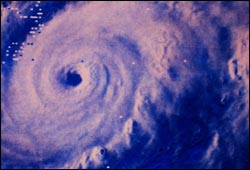Plastic bag ban is a bad idea
The mayor is expected to sign the bill into law.San Francisco supervisors and supporters said that by banning the petroleum-based sacks, blamed for littering streets and choking marine life, the measure would go a long way toward helping the city earn its green stripes.
"Hopefully, other cities and states will follow suit," said Supervisor Ross Mirkarimi, who crafted the ban after trying to get a 15-cent per bag tax passed in 2005.
This is a bad idea for the following reasons:
- Litter is a behavioral problem. Switching to paper bags will not reduce litter. Paper bags thrown on the ground do not magically disappear.
- Paper bags do not degrade in a land-fill. Nothing degrades in a landfill. One of the arguments against plastic bags is that they do not degrade and we are disposing of tons of waste every day. In the late 1980's and early 90's, Dr. William Rathje, a "garbologist from the University of Arizona, found that buried waste degrades so slowly that old food and newspapers were recognizable after 10 years in a landfill.
- Plastic bags are recyclable. The San Francisco supervisors would have better spent their efforts establishing and promoting the collection and market for recycled plastic products.
- Paper bags actually create more pollution during their manufacture than plastic bags do. The Kraft paper manufacturing process is a dirty process that relies on some rather noxious chemicals. Ask anyone who lives downwind of a paper mill about the constant putrid smell. Plastic bags are made from polyethylene. Polyethylene, by contrast, is produced with a clean process in which ethylene gas is reacted in a pressurized reactor. The ethylene reaction requires very pure reaction components. So the reactors are sealed very tightly thereby eliminating practically all emissions. The polymer, once produced is fabricated into a film in a process that again emits essentially no emissions.
- Plastic products is one of the few industries where the US maintains a trade surplus. A Houston radio host discussing this issue tonight had a caller who claimed that the plastic bags are produced with low wage labor in China and tariffs should be applied. The fact is that plastic products are produced in the USA. Tooling and machinery are finding their way to China but we still have the lead with finished plastic goods.
- Paper bags cost around 0.8 cents per bag while plastic bags cost less than 0.2 cpb. This ban will automatically cause prices to rise.
- The current compostable products, primarily made from PLA (poly lactic acid), are very new and are promising. These products, though are very expensive with a cost per bag as high as 8 cents per bag for large size garbage bags. As this technology is scaled up and expanded, a new, cost effective solution will develop. This must be the result of normal market forces NOT legislation.



2 Comments:
And since when did reality, or even actually protecting the environment matter to environmentalists?
They're much more interested in anything that works against capitalism than in protecting the environment.
Most of their leaders are simply displaced communists and socialists with an anti-American agenda in the first place. They use environmentalism as a ploy to gain support for their causes from the gullible people who feel guilty about "raping the planet."
You are so right, my friend. All of the liberal groups are pushing the same agenda. They all hide behind their own front groups but band together to saturate the media with the same message. They want to make sure that everything leads to higher taxes, reduced prosperity (except for them of course) and reduced prominence for America.
Thanks for stopping by Perri.
Post a Comment
Subscribe to Post Comments [Atom]
<< Home